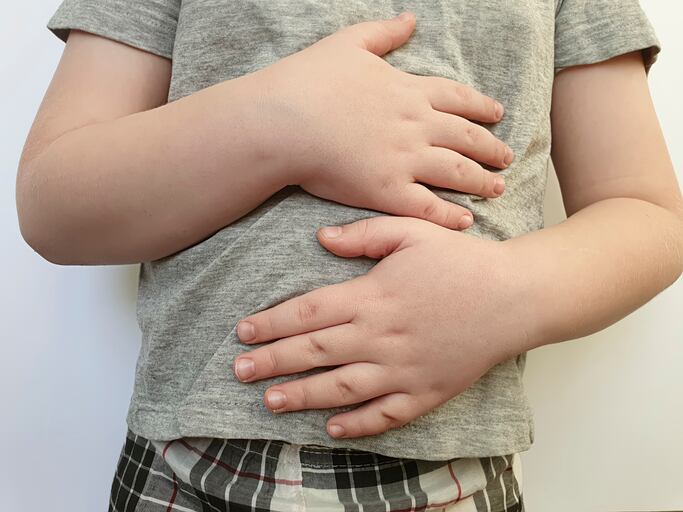These lower doses could still manage diarrhoea symptoms effectively, according to a review and meta-analysis of randomised controlled trials (RCTs) across regions including Asia and the Middle East.
“Zinc should continue to be recommended in children under the age of 10 years with acute or persistent diarrhoea, but moderate certainty of evidence concludes that the dose of zinc should be reduced,” wrote researchers in Journal of global health.
“However, further multi-country randomised clinical trials are required with a direct comparison to assess the appropriate dosage, duration and adverse effects,” they added.
The adverse effect of vomiting has been extensively studied since the WHO and UNICEF endorsed oral zinc for managing children’s diarrhoea in 2004, as it acts as a deterrent for the use of zinc supplementation.
This research was funded by a grant from the World Health Organization (WHO) to the Centre of Excellence in Women and Child Health, Aga Khan University (AKU), Pakistan.
The WHO commissioned this review to update its existing guidelines on childhood diarrhoea management.
Researchers therefore aimed to assess the effectiveness of zinc for the management of acute watery or persistent diarrhoea in children less than 10 years of age.
The primary outcomes for this review were time to recovery; mortality, serious adverse events (including vomiting); and duration of diarrhoea.
The study
The studies included 38 primary trials from 43 published studies, with 33,693 children in total. They included children with acute and persistent diarrhoea.
Countries with populations from low-, middle-, and high-income countries were studied. They included Iran, the Philippines, India, Thailand, Australia, and China.
The interventions assessed the effectiveness of oral zinc supplementation compared to no zinc in managing these conditions. Some studies specifically examined the impact of high-dose versus low-dose zinc.
Comparison groups included those receiving no zinc, different zinc dosages, or cases where both groups received standard interventions such as WHO-recommended oral rehydration solution (ORS), intravenous fluids, antibiotics, and supportive care, with zinc as the primary variable.
Effects of zinc supplementation on children
The findings suggest that, in children with acute diarrhoea, zinc supplementation resulted in a significantly greater proportion of children who recovered from diarrhoea at last follow up, with a risk ration of 1.07 – meaning children taking zinc were 7% more likely to recover compared to those who did not.
The duration decreased significantly when zinc was administered for five or 14 days, with a mean difference of −13.27 hours when compared to a placebo.
Mortality was comparable (no significant difference) between the zinc group and placebo or control groups.
The results for the treatment of children with acute diarrhoea suggested that recovery was significantly higher in the zinc group, at a dose of 20mg, when zinc is administered for five or 14 days in the form of zinc sulfate or zinc gluconate.
However, the risk of vomiting was also higher in the zinc group at a dose of 20mg or when zinc is administered for 14 days.
The review suggested that the risk of vomiting was 46% higher in patients receiving zinc. However, when comparing standard dose zinc vs low dose zinc, the risk of vomiting decreased significantly by 24% in the low dose group, i.e. 10mg/5 mg group, said researchers.
“Our findings are in line with existing guidelines and reviews, while our subgroup analyses on the optimal dose, frequency, and formulation add new knowledge to the existing evidence base,” said researchers.
“These results suggest that low doses of zinc should be administered to reduce vomiting, as they achieve a similar efficacy as standard dose zinc,” they added.
However, it remains crucial to persist in promoting suitable fluid and dietary therapy as the fundamental approach to decrease the morbidity and mortality associated with diarrhoea.
“Current evidence reinforces the benefits of zinc supplementation in the management of acute and persistent diarrhoea and recommends the continuation of guidelines for zinc supplementation in childhood diarrhoea although the current recommended dose could be reduced.
“Further large-scale multi-country randomised trials with direct comparisons are required for definitive dosage and duration of zinc supplementation for all age groups,” concluded researchers.
Currently, the WHO and UNICEF recommend prescribing 10–20mg of oral zinc per day for 14 days to children under five years of age with diarrhoea. Oral zinc supplements are available in various forms, including zinc sulphate, zinc acetate, or zinc gluconate.
The WHO defines diarrhoea as the passage of three or more loose or liquid stools per day or as an increase in stool frequency. It is categorised into three types: acute watery diarrhoea, defined as diarrhoea lasting for several hours or days but less than 14 days; acute bloody diarrhoea, also known as dysentery; and persistent diarrhoea, defined as diarrhoea lasting 14 days or longer.
Zinc deficiency compromises the integrity of the intestinal barrier. However, zinc supplementation during diarrhoea can help restore the tight junctions between intestinal cells, reducing the leakage of fluid and electrolytes. Additionally, the role of zinc in boosting the immune system makes it a key part of diarrhoea management.
Source: Journal of global health
DOI: https://doi.org/10.7189/jogh.14.04212
“Zinc supplementation for acute and persistent watery diarrhoea in children: A systematic review and meta-analysis”
Authors: Ayesha Arshad Ali, Syeda Kanza Naqvi et al.

